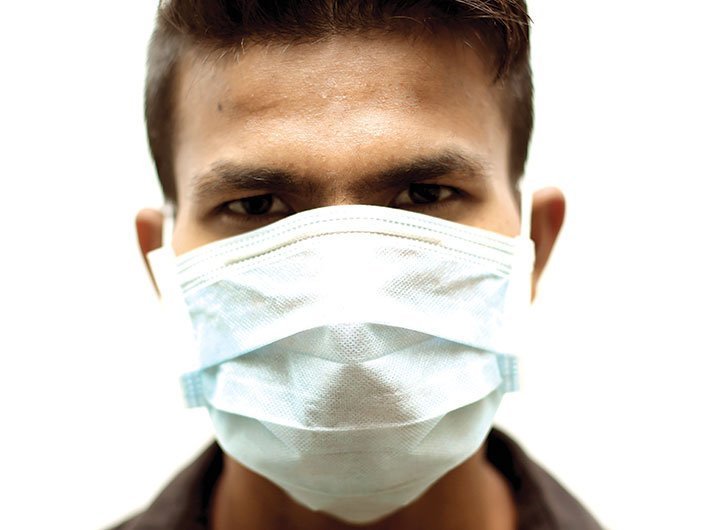The BrihanMumbai municipal corporation (BMC) has countered Maharashtra leader of opposition Devendra Fadanvis’s suspicions of fewer Covid-19 tests, as it outlined various measures it has adopted since the first test conducted on February 3, and how it has gradually brought down the number of cases in the metropolis.
On Wednesday, Fadnavis, former chief minister, tweeted, “It was relieving to see yesterday’s Covid cases in Mumbai coming down to 806 until I realised that only 3300 samples were tested. Are we playing with the lives of Mumbaikars?”
In a statement issued late Wednesday, BMC refuted the allegations as baseless, saying it has increased the testing capacity and the number of patients is under control due to implementation of various methods adopted buy it.
“MCGM [Metropolitan Corporation of Greater Mumbai] has emphasised on testing ever since the outbreak of the Covid-19 epidemic, keeping in mind the need for maximum testing in order to curb the spread of the infection. MCGM has been conducting tests in compliance with the guidelines issued by ICMR, central government and the state government. The first test for Covid-19 was conducted in Mumbai on 3rd February, 2020 while the first patient tested positive on 11th March, 2020. From 3rd February to 6th May, 2020, Mumbai conducted 1 lakh tests for Covid-19 while the milestone of 2 lakh tests was crossed on 1st June, 2020 and that of 3 lakh tests on 24th June, 2020. Till date (8th July, 2020), a total of 3,64,753 tests have been conducted in the city of Mumbai,” the BMC says in the statement.
While gradually increasing the number of tests, MCGM has also been making appropriate amendments to the testing guidelines. According to ICMR guidelines, initially testing was not permitted without a medical prescription and alternatives like e-prescriptions and self-declaration forms were introduced. But on Wednesday private laboratories have been allowed to conduct tests for Covid-19 without a doctor's written prescription.
READ THE EARLIER REPORT
Mumbai opts for “most liberal Covid-19 testing” in the world
In addition to increasing the number of tests, MCGM has also taken measures to increase the capacity at hospitals treating Covid-19 patients, set up temporary hospitals across the city and made arrangements to provide oxygen and ICU treatment facilities.
Alongside isolation of people in contact with those infected has also been on the rise. Till date, the tracing of more than 16 lakh contacts has been done. Out of these more than 13,44,000 have successfully completed their quarantine period. Maximum numbers of high risk contacts are being quarantined. This has also helped MCGM bring down the total number of patients in the city. With door-to-door surveys conducted across the city, more than 5,38,000 senior citizens till date have been examined. Fever clinics set up in different areas across the city of Mumbai have identified 443 patients. MCGM’s initiatives like the Rapid Action Plan in hotspots using mobile clinics too have helped curb the spread of coronavirus in the city.
“Dharavi is one of the many success stories of the proactive approach adopted by MCGM. What was once considered to be a hotspot of the pandemic in the city, has now reported only one positive case yesterday (July 7) and three cases today. It is a testimony of MCGM’s concerted effort to take on coronavirus and was even appreciated by the central government,” says BMC.
“It is worth mentioning that MCGM has also purchased antigen testing kits that can give results in about half an hour, thereby speeding up the overall testing process. Around 1 lakh testing kits have been purchased for the same. With the antigen test kits in use since 3rd July, 2020, the number of tests being conducted on a daily basis has now gone up to 5,500. Today around 5,483 tests have been conducted which highlights the rise in the average testing capacity that was around 4,000 per day till a few days ago. It also highlights the transparency with which MCGM has been reporting information to the government and citizens regarding the number of tests being conducted.”
It further says that in order to study the coronavirus infection Sero Survey has been initiated across the country. The survey has also been launched in Mumbai in collaboration with the NITI Aayog, Tata Institute of Fundamental Research (TIFR) and others. It is an antibody test that is conducted by collecting blood samples. Wards M/West, F/North and R/North have been selected for the survey, which is being conducted in slums and also in non-slum areas. A total of 10,000 samples are being collected at random. The sero-survey will play a crucial role in public health policy decision making. The survey is also important from the perspective of providing information regarding other diseases or the risk to certain age/gender groups. The initiative highlights MCGM’s sincere and sensitive approach to beat the virus and keep the health of the citizens as its topmost priority.

